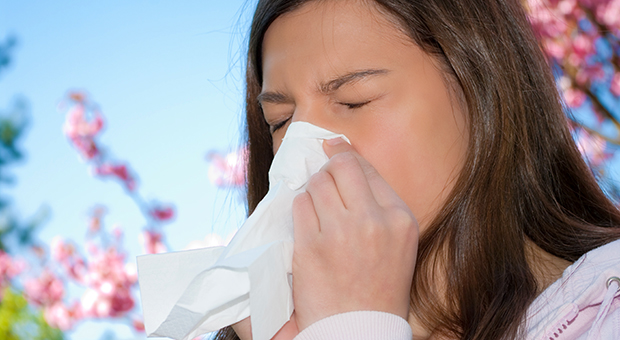The Medical Minute: Learn some ways to get ahead of allergy symptoms

With spring here, many of us with a known history of seasonal pollen allergies end up with significant related symptoms. Sometimes, the symptoms come on slowly and people do not act on them until they incur headaches, nasal congestion and potentially sinusitis.
“Being more proactive helps eliminate the need to visit a doctor and take unnecessary antibiotics,” said Dr. Madhavi Singh, family physician and hospitalist with Penn State Hershey in State College, Pa. “Some antibiotics can be deleterious for our health in the long run due to causing C diff. infections.”
To be vigilant, start taking daily antihistamines or other medications prescribed by your physician right away. Keeping a watch on the pollen count also is very helpful. On days when the pollen count is very high, it may be best to stay indoors while keeping the windows closed.
“Many people who have seasonal pollen allergies also are allergic to dust mites, molds and animal dander,” said Dr. Singh. “Be sure to check on such exposures to help alleviate flare ups.”
In order to differentiate whether you are having nasal congestion, post nasal drip and a cough from a cold or flu or from seasonal allergies is that allergy symptoms last much longer.
Simply applying these tips during beautiful spring weather will help you enjoy it to the fullest.
- Learn more ways you can prevent and treat seasonal allergies at home: http://pennstatehershey.adam.com/content.aspx?productId=117&pid=60&gid=000547
- Learn more about recognizing seasonal allergies and investigate alternative and homeopathic treatment options: http://pennstatehershey.adam.com/content.aspx?productId=107&pid=33&gid=000003
- Find daily pollen counts and forecasts here: http://www.pollen.com/allergy-forecast.asp
The Medical Minute is a weekly health news feature brought to you by Penn State Milton S. Hershey Medical Center. Articles feature the expertise of Penn State Hershey faculty physicians and staff, and are designed to offer timely, relevant health information of interest to a broad audience.
If you're having trouble accessing this content, or would like it in another format, please email Penn State Health Marketing & Communications.
